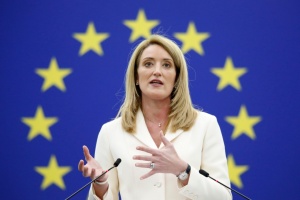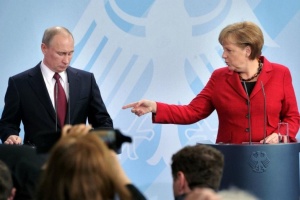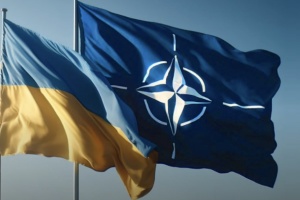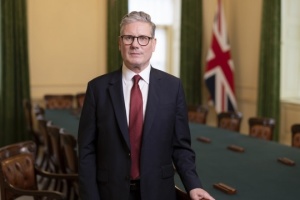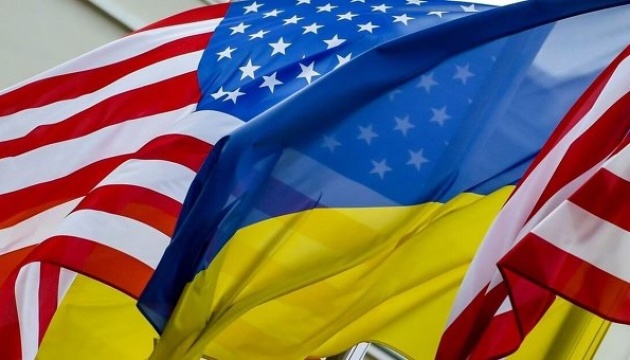
Top 7 diplomacy highlights of 2021: Crimea Platform, new Charter with U.S.
Late last year, Foreign Minister Dmytro Kuleba named seven priorities for 2021 by which Ukraine’s diplomacy was set to be guided. These included countering Russian aggression, fighting COVID-19, launching the Crimea Platform initiative, developing a new state policy toward Ukrainians living abroad, boosting exports and attracting investment, developing renewables, and engaging with Africa.
However, since diplomacy is the art of the possible, not all priority areas automatically translated into achievements at the end of the reporting period.
First of all, this relates to the opening point, which is countering Russian aggression. Diplomatic efforts along this track can be described as taking a punch – not always direct ones – amid an unstable environment of geopolitical shifts.
This year, Russia’s armed escalation was coming in waves, splitting into streams in a threat to cross into Ukraine including from neighboring Belarus, and reaching the Asia-Pacific region, where the Russian and Chinese Navies organized joint patrolling of warships. And this is without taking into account Russia’s act within the Minsk-2 and Normandy Four formats, where its delegates, if they appeared at all, did it with the only aim, figuratively speaking, of flipping the negotiating table over or confusing their opponents.
In response, Ukraine’s diplomacy is raising strong waves of consolidation among international partners, which we have seen in the spring and also recently.
Therefore, this area will expectedly remain MFA Ukraine’s priority next year or even in the years to come.
Although the Russian threat has taken up the lion's share of Ukrainian diplomats' attention, the Foreign Ministry also focused on other strategic areas.
We offer you a review of this year’s events, which, in our opinion, comprise the TOP 7 highlights of Ukraine’s diplomatic efforts.
1. Crimea Platform Summit
On August 23, delegations of 46 countries and international organizations arrived in Kyiv for the inaugural summit of the Crimea Platform initiative to tell Russia that the Crimea issue is a closed one and that Moscow will eventually be held accountable for the crimes committed.
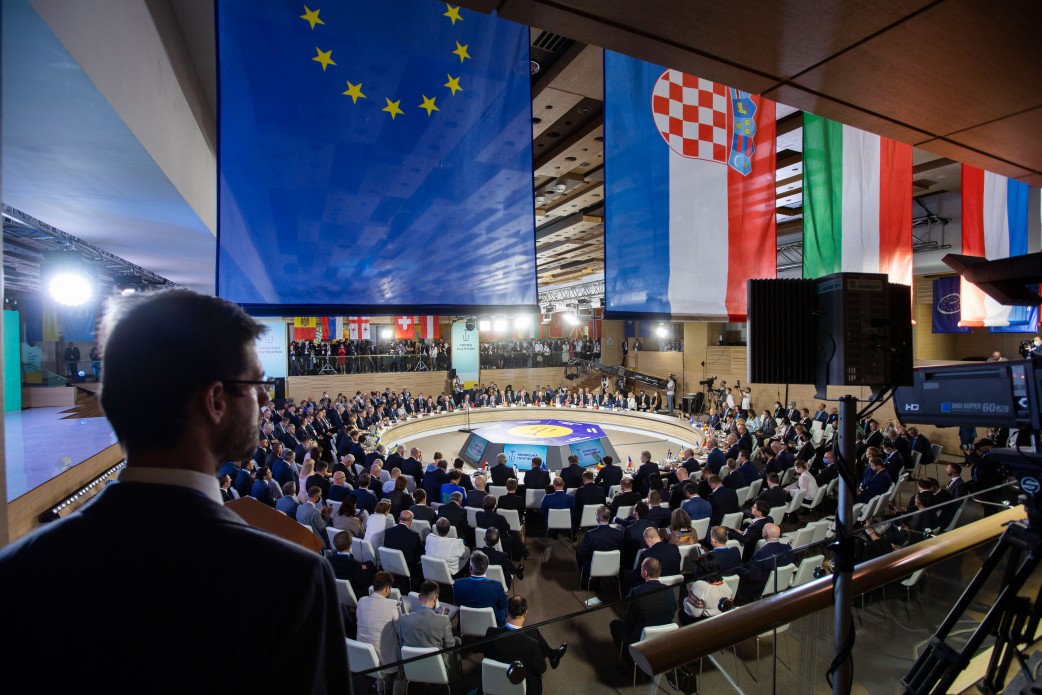
The declaration adopted by the Summit participants says the Crimea Platform aims at "peacefully ending the Russian Federation’s temporary occupation of the Autonomous Republic of Crimea and the city of Sevastopol and to restore control of Ukraine over this territory in full accordance with international law."
A special Office opened in Kyiv on August 23 will ensure continued work of the new consultation and coordination format. Similar offices are expected to be opened in other participating countries as well.
Russia's opposition to Ukraine's initiative and the efforts to draw the attention of the international community to the Crimea issue has taken various forms, from denial to compromising or blackmailing potential summit participants. However, the dogs bark but the caravan moves on so at the moment, international partners are waiting for the solid initiative to be filled with specific content.
Ukraine has already presented its vision of the functioning and development of the Crimea Platform for the deoccupation of the Crimean peninsula at the OSCE Ministerial in Stockholm.
2. Renewed Ukraine-U.S. Strategic Partnership Charter
At last year's final press conference, the foreign minister called Ukraine's relations with the United States one of the "great intrigues" of 2021.
"This will be very interesting, but I’m convinced that, as a result of this cooperation, we will become even stronger, while our partnership with the United States will deepen," Kuleba predicted.
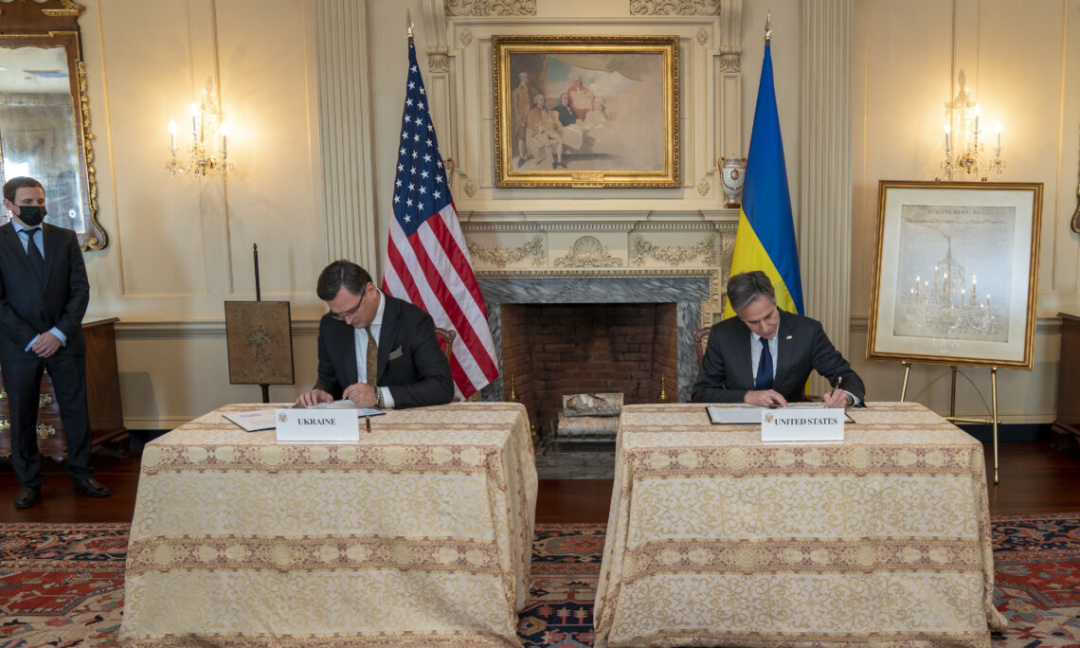
He might have known something as on November 10, together with U.S. Secretary of State Antony Blinken, he signed the renewed Ukraine-U.S. Strategic Partnership Charter, which defined the format of relations between the two countries for the next decade.
Russian Ambassador to the United States Anatoly Antonov, commenting for the Russian media the strategic document signed by Ukraine and the U.S., said that the deal is “geopolitically charged with countering Russia."
Well, it was the Russians who started the mess – and they don’t seem to be willing to stop, so this “countering” bit is pretty much their own fault.
3. Foreign Policy Strategy
On July 30, the National Security and Defense Council of Ukraine passed the Foreign Policy Strategy, for the first time in Ukraine’s history. On August 26, President Volodymyr Zelensky enforced the document by his decree.
The main goal of Ukraine’s foreign policy, as per the Strategy, is affirming Ukraine’s position in the world as a “strong and authoritative European state.”
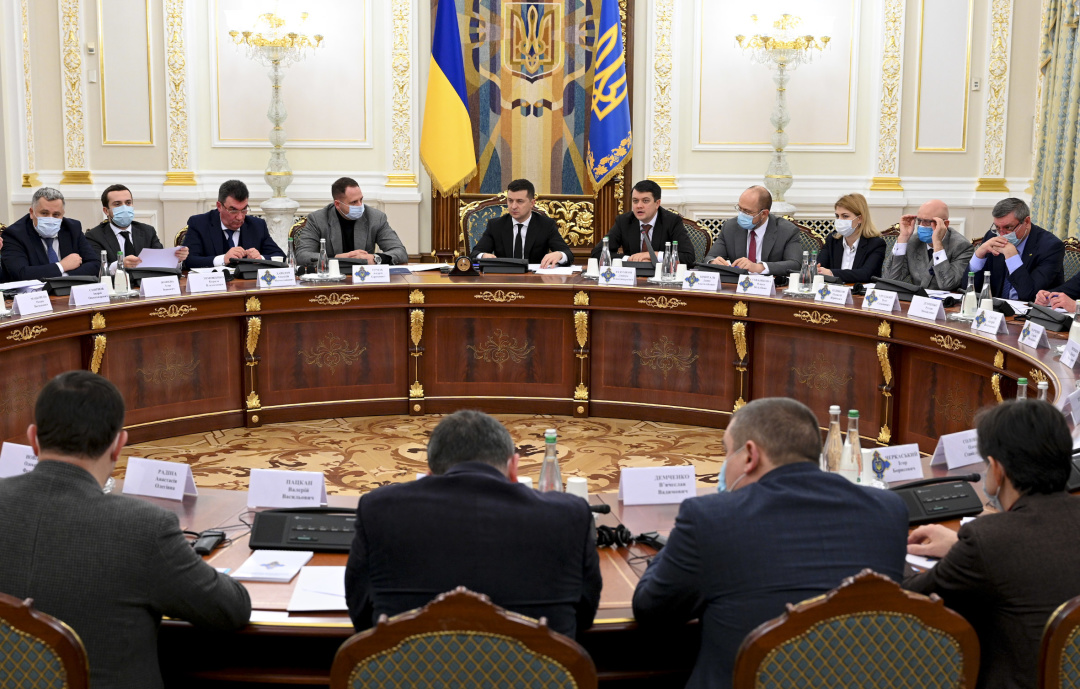
In total, the strategy contains of 254 points, which can be divided into three main topics: maintaining a proactive stance in international politics, shaping a security architecture in the country, the region, and the world, as well as creating new economic opportunities.
The Strategy identifies five countries with which relations shall be of priority strategic nature: the United States, the United Kingdom, Canada, Germany, and France. At the same time, the range of strategic partners is not limited to this list. Among Ukraine's strategic partners are Poland, Turkey, Azerbaijan, Georgia, Lithuania, Romania, China, and Brazil. The Strategy also notes global partnership with Japan and the importance of cooperation with India. In addition, emphasis is placed on the priority of developing relations with neighboring countries, including bringing to a strategic level Ukraine’s contacts with Moldova.
According to international experts, for the first time ever, Ukraine has a comprehensive and comprehensive action plan on the world stage.
4. Association Trio
Launched by MFA Ukraine back in 2020, the initiative to create regional alliances, including the Lublin Triangle between Lithuania, Poland, and Ukraine, and the Quadriga between Ukraine and Turkey, this year developed as an Association Trio involving Ukraine, Georgia, and Moldova was set up on May 17. The three countries declare their willingness to cooperate with the EU more closely, striving to eventually join the bloc.
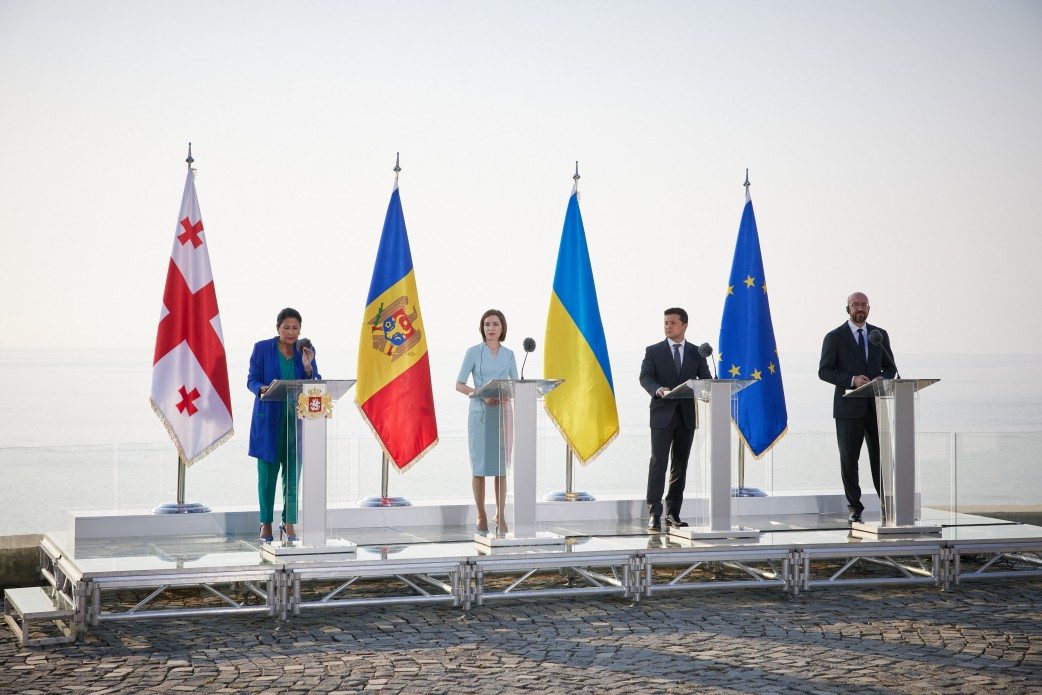
At a recent EU and Eastern Partnership foreign ministerial in Brussels, Ukraine’s diplomacy chief Dmytro Kuleba outlined his country’s vision of the strategic tracks the initiative would work along: developing trade, strengthening security, including energy, implementing the European Green Deal, and integrating into EU’s digital and internal markets.
After the heads of Ukrainian, Moldovan, and Georgian governments met with the EU leadership in preparation for the Eastern Partnership summit in Brussels on November 30, Prime Minister Denys Shmyhal of Ukraine called on the EU to recognize the European prospects of the Association Trio.
Whether the officials heard the Trio out will be clear on December 15, when the sixth Eastern Partnership Summit will take place.
5. Intensification of relations with African countries
Access to the African continent was one of the Foreign Ministry's priorities for 2021. At least at the level of establishing political contacts, it can be considered a success.
The Foreign Ministry said that over the past few months, Ukraine's top diplomat had held a series of meetings and calls with African counterparts, most of which took place for the first time in history.
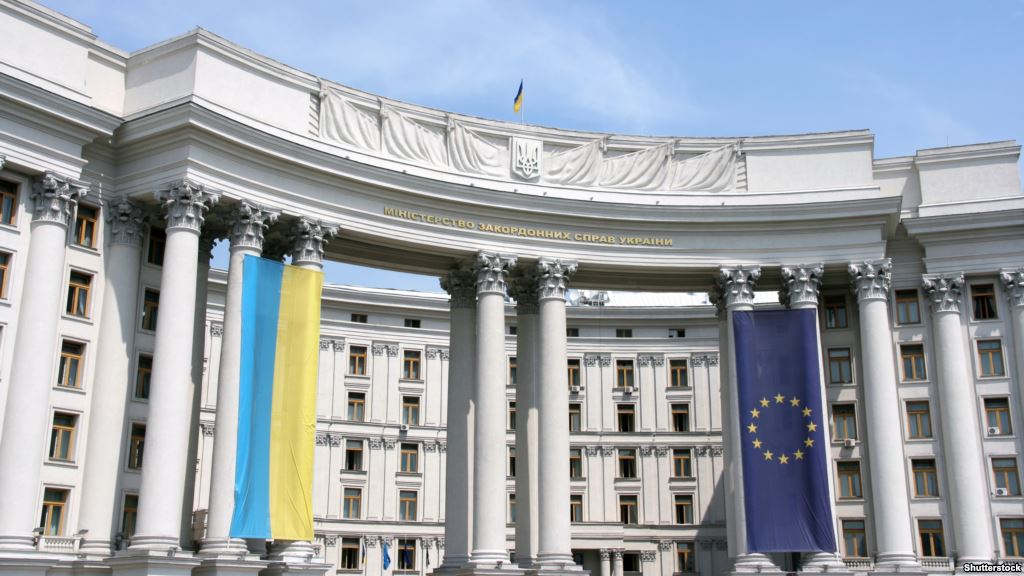
In particular, Dmytro Kuleba's Africa successes this year include the first-ever phone call with Senegalese Foreign Minister Aïssata Tal Sal and Botswana's top diplomat Lemogang Kwape, as well as a meeting with his countepart from Niger, Hassoumi Massaoudou.
In addition, the Ukrainian Foreign Minister had phone calls with Nigeria’s Foreign Minister Geoffrey Onyeama, Côte d’Ivoire’s Foreign Minister Kandia Camara, and Libyan Government of National Unity chief Abdulhamid Dbeibah.
6. Ukraine appoints Ambassador to NATO
The Ukrainian President’s decision, adopted at the request of the country’s Foreign Minister, took off the agenda the question, how come, while insisting at various platforms on its will to become a NATO Ally in the future, Ukraine has not appointed chief of its Mission to NATO for more than two years.
On July 30, former Ukrainian Ambassador to the United Kingdom, Natalia Galibarenko, was finally appointed to the said post. She also became the first woman to head Ukraine's Mission to the Alliance.

Interestingly, in July last year, she was replaced as ambassador to the UK by former Foreign Minister Vadym Prystaiko, who had headed Ukraine’s Mission to NATO from 2017 to 2019, being the last appointed head, followed by two acting chiefs.
So there is reason to hope that such a castling will have a synergistic effect for both diplomats and for the country, too.
7. New travel opportunities for Ukrainians amid COVID-19 restrictions
While last year, the Ministry of Foreign Affairs worked with international partners to provide Ukrainians with a sufficient number of coronavirus vaccines, this year the main emphasis was on creating foreign travel opportunities. In both areas, MFA Ukraine bore fruit – as of mid-summer, more than 120 countries were open to Ukrainian nationals.
In addition, thanks to the joint efforts of the Ministry of Foreign Affairs, the Ministry of Finance, the Ministry of Health, the Ministry of Internal Affairs, and other agencies, on August 20, Ukraine became one of the first non-EU countries to have its COVID digital certificates officially recognized in the European Union.

Although the EU formally removed Ukraine from the "green list" on November 9, recommending that EU member states temporarily ban Ukrainian tourists from crossing in, a number of European countries later announced their intention to retain open borders to vaccinated Ukrainians.
* * *
Throughout this year, Ukrainian diplomats also continued their fight against Russia’s Nord Stream 2 gas pipeline project, first trying to halt the completion of its construction and then to ensure it only launches if certified in line with European law; contributed to the evacuation of Ukrainians from turbulent Afghanistan and Syria; desperately tried to revive the Normandy Four platform for Donbas settlement; worked with Ukraine's lawsuits in international courts; helped domestic producers explore new markets; and sought to improve Ukraine's image in the eyes of the world.
Indeed, not all their efforts have seen success, but we hope that next year they will seize new opportunities and gain new wins on the peaceful diplomatic front.
Nadiia Yurchenko, Kyiv
im

